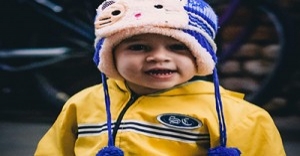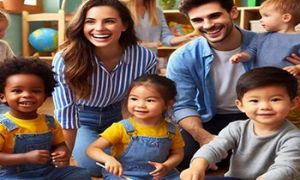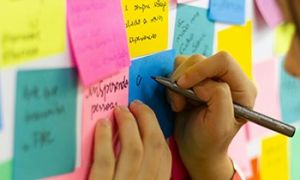

Here’s a curated set of 20 child-centered art activity instructions designed to foster creativity, autonomy, and exploration. Each activity includes setup tips, educator role guidance, and EYLF/NQS links.
Here’s a themed EYLF-aligned guide to 30 preschool science experiments, complete with materials, instructions, science concepts, and EYLF learning outcomes. This is designed for educators who want to embed intentionality, inquiry, and curriculum links into hands-on science.
Here’s a roundup of 20 super simple science experiments for toddlers in early learning settings. These activities are sensory-rich, safe, and designed to spark curiosity while introducing foundational science concepts.
With National Science Week on from 9th to 17th August 2025, this is a great opportunity to introduce science to babies. For babies it’s less about formal experiments and more about sensory exploration, pattern recognition, and curiosity-driven play—all foundational to scientific thinking and nurturing their natural curiosity and helping them explore the world through sensory-rich, playful experiences.
Young children often explore their world through touch and close contact, but rough play can lead to upset or hurt feelings. Introducing personal space and consent concepts early helps preschoolers learn boundaries, empathy, and respectful interactions.
In a world where safeguarding begins with everyday interactions, teaching consent to toddlers and preschoolers isn’t just possible—it’s essential. Long before children understand the word “consent,” they can learn what it feels like to be respected, heard, and safe. These early lessons lay the foundation for lifelong boundaries, empathy, and self-worth.
Simple songs about consent gently introduce children to concepts like body autonomy, boundary-setting, and respectful communication in ways that feel playful, affirming, and easy to remember. By pairing repetitive rhymes with hand motions, call-and-response, and relatable scenarios, these songs help children internalize messages such as “I can say no,” “I ask before I touch,” and “My voice matters.” Whether used in circle time, transition moments, or home routines, they offer educators and families an emotionally safe, joyful way to teach consent from the ground up.
Creating a safe and empowering environment for preschoolers begins with intentional, age-appropriate education around body autonomy, emotional literacy, and help-seeking skills. This article offers a collection of EYLF-aligned, trauma-informed Child Protection activities designed to foster safety, resilience, and voice in young learners.
In a heartwarming episode of Playschool titled “Island Life,” features Uncle Charles Passi, a proud Torres Strait Islander, joins the show and introduces viewers to the sit-down dance “Taba Naba,” a traditional Torres Strait Islander song that celebrates island life, the sea, and community connection. This is a great opportunity for educators to learn to dance to teach children.
In a world where children are constantly learning how to navigate relationships, boundaries, and emotions, Lulu Says Yes, Lulu Says No is a free children's story to introduce the concept of consent. Through the eyes of Lulu the Ladybug, children explore what it means to feel safe, respected, and empowered to make choices about their own bodies. This story is more than a tale—it's a teaching tool that supports social-emotional learning, body autonomy, and respectful communication in early childhood settings. The following article provides the free children's book Lulu Says Yes, Lulu Says No, Learning Objectives, Link to the EYLF, Discussion Prompts, Extension Ideas and more.
 As an Educator in Australia, your pay rate falls under the Children’s Services Award 2010. This award states the minimum amount that an employer can… Read More
As an Educator in Australia, your pay rate falls under the Children’s Services Award 2010. This award states the minimum amount that an employer can… Read More
 When working as a qualified Early Childhood Teacher (with a university degree) within a service, your rate of pay will come from the Educational Services… Read More
When working as a qualified Early Childhood Teacher (with a university degree) within a service, your rate of pay will come from the Educational Services… Read More
 When working as a Diploma Qualified Educator your pay rate is from the Children's Services Award 2010. This Award states your minimum rate of pay… Read More
When working as a Diploma Qualified Educator your pay rate is from the Children's Services Award 2010. This Award states your minimum rate of pay… Read More
 When working as a Cert 3 Qualified Educator, your pay rate is from the Children's Services Award 2010. This Award states your minimum rate of… Read More
When working as a Cert 3 Qualified Educator, your pay rate is from the Children's Services Award 2010. This Award states your minimum rate of… Read More
 Educational Leaders play a crucial role in their early childhood service by ensuring that the educational program aligns with best practices and supports the holistic… Read More
Educational Leaders play a crucial role in their early childhood service by ensuring that the educational program aligns with best practices and supports the holistic… Read More
 With the new national child safety reforms kicking in on 1 September 2025, early childhood services like yours have a real opportunity to lead the… Read More
With the new national child safety reforms kicking in on 1 September 2025, early childhood services like yours have a real opportunity to lead the… Read More
 In early childhood education and care, ratios are more than a technicality—they are a frontline safeguard. Every child deserves responsive supervision, emotional connection, and developmental… Read More
In early childhood education and care, ratios are more than a technicality—they are a frontline safeguard. Every child deserves responsive supervision, emotional connection, and developmental… Read More
 Here’s a comprehensive Mobile Phone and Smart Watch Policy tailored for early childhood education and care (ECEC) services in Australia, aligned with the latest 2025… Read More
Here’s a comprehensive Mobile Phone and Smart Watch Policy tailored for early childhood education and care (ECEC) services in Australia, aligned with the latest 2025… Read More
 The Sea of Fish Challenge is a national initiative that invites children, educators, families, and communities to create and display fish artworks as a symbol… Read More
The Sea of Fish Challenge is a national initiative that invites children, educators, families, and communities to create and display fish artworks as a symbol… Read More
 Cold weather play is incredibly beneficial for early childhood development! It helps children build resilience, strengthen their immune systems, and develop essential motor skills. Here’s… Read More
Cold weather play is incredibly beneficial for early childhood development! It helps children build resilience, strengthen their immune systems, and develop essential motor skills. Here’s… Read More

"My Family" theme is an engaging and meaningful way to help toddlers and preschoolers learn...
See more...
Here’s a streamlined set of weekly reflection questions designed for educators to use quickly—whether during...
See more...
Working barefoot is beneficial for educators in early childhood settings. It is comfortable and relaxing...
See more...© 2009-2025 Aussie Childcare Network Pty Ltd. All Rights Reserved.

